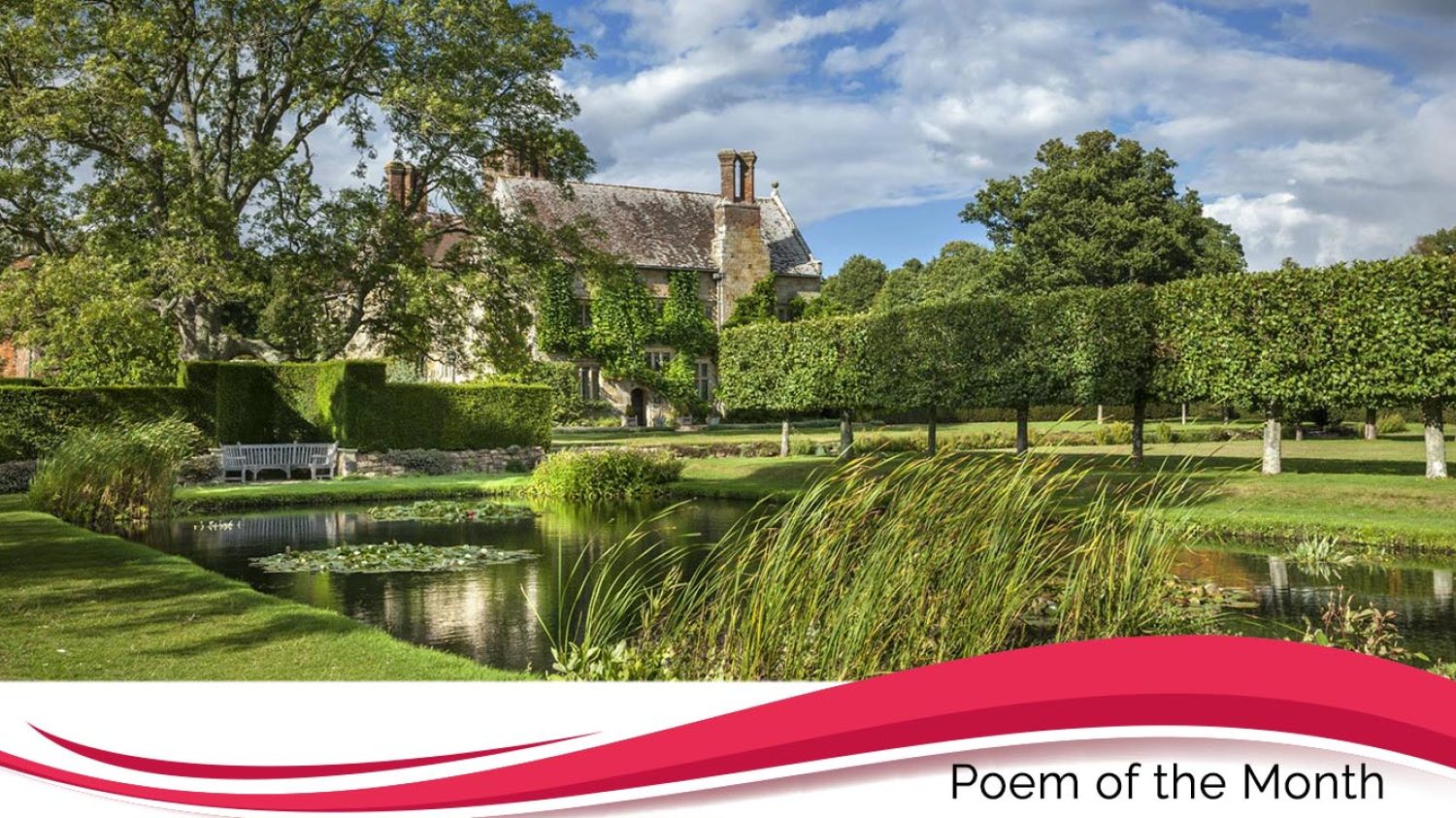One of my favourite gardens anywhere in the world is at Bateman’s, Rudyard Kipling’s glorious home in East Sussex. I also love his poem, The Glory of the Garden, first published in A School History of England in 1911.
The Glory of the Garden by Rudyard Kipling
Our England is a garden that is full of stately views,
Of borders, beds and shrubberies and lawns and avenues,
With statues on the terraces and peacocks strutting by;
But the Glory of the Garden lies in more than meets the eye.
For where the old thick laurels grow, along the thin red wall,
You’ll find the tool—and potting—sheds which are the heart of all
The cold—frames and the hot—houses, the dung—pits and the tanks,
The rollers, carts, and drain—pipes, with the barrows and the planks.
And there you’ll see the gardeners, the men and ‘prentice boys
Told off to do as they are bid and do it without noise ;
For, except when seeds are planted and we shout to scare the birds,
The Glory of the Garden it abideth not in words.
And some can pot begonias and some can bud a rose,
And some are hardly fit to trust with anything that grows ;
But they can roll and trim the lawns and sift the sand and loam,
For the Glory of the Garden occupieth all who come.
Our England is a garden, and such gardens are not made
By singing:—” Oh, how beautiful,” and sitting in the shade
While better men than we go out and start their working lives
At grubbing weeds from gravel—paths with broken dinner—knives.
There’s not a pair of legs so thin, there’s not a head so thick,
There’s not a hand so weak and white, nor yet a heart so sick
But it can find some needful job that’s crying to be done,
For the Glory of the Garden glorifieth every one.
Then seek your job with thankfulness and work till further orders,
If it’s only netting strawberries or killing slugs on borders;
And when your back stops aching and your hands begin to harden,
You will find yourself a partner In the Glory of the Garden.
Oh, Adam was a gardener, and God who made him sees
That half a proper gardener’s work is done upon his knees,
So when your work is finished, you can wash your hands and pray
For the Glory of the Garden that it may not pass away!
And the Glory of the Garden it shall never pass away!
In the poem, Kipling uses the garden as a metaphor for the whole of England, with all the connotations of growth, decay, development and work. He uses the idea of Adam and Eve as the first gardeners. He also lauds the unsung – the apprentice boys, those who pull the weeds and do so much work that their backs ache, without any especial praise. The idea behind the poem is that by all working together, we can create beauty and order, stability and a place of peace.
The National Trust, which owns and cares for Bateman’s, designed some ‘poetry trail’ metal banners which display some lines from the poem.
I adore the garden at Bateman’s. There’s a beautiful wild orchard and you can walk through wildflowers as you visit the old water mill on the property. There’s a garden pond (Kipling used to keep a record of all the visiting children and adults who fell in the pond while boating), lovely little statues dotted around, a rose garden, an ancient sundial onto which he carved the words ‘It’s later than you think’, and many fine old trees. Kipling, youngest ever winner of the Nobel Prize for Literature, spent much of his prize money creating this garden.
Listen to a reading by Ben W Smith:
Have you enjoyed this poem? I’d love to know what you think, let me know by leaving a comment.
Selected links for relevant websites, books, movies, videos, and more. Some of these links lead to protected content on this website, learn more about that here.
The Kipling Society: The Glory of the Garden
Internet Archive: A School History of England
Bateman’s, Rudyard Kipling’s Home
The birth of Rudyard Kipling
Susannah Fullerton: Rudyard Kipling, Novelist and Poet of Empire
Susannah Fullerton: The Elephant’s Child
Susannah Fullerton: Lest We Forget
Susannah Fullerton: A Smuggler’s Song
Susannah Fullerton: Crowd-funding Kipling
Susannah Fullerton: Brown’s Hotel
Susannah Fullerton: The Kipling Suite
Susannah Fullerton: 5 Favourite Short Stories
Susannah Fullerton: Brief Encounters: Literary Travellers in Australia 1836-1939


Margaret Debenham
As one of the “hardly fit to trust with anything that grows”, I did enjoy the poem, for the reasons you point out, but also because of its humour – there seems to be a touch of tongue-in-cheekness there at times (or is that just me?), especially where the down-to-earth (no pun intended) garden talk of slugs and weed-grubbing suddenly meets poetic language (as in the slightly incongruous “glorifieth” and “occupieth”). Bateman’s is truly a gorgous place (especially the study), and I am looking forward to seeing it again shortly.